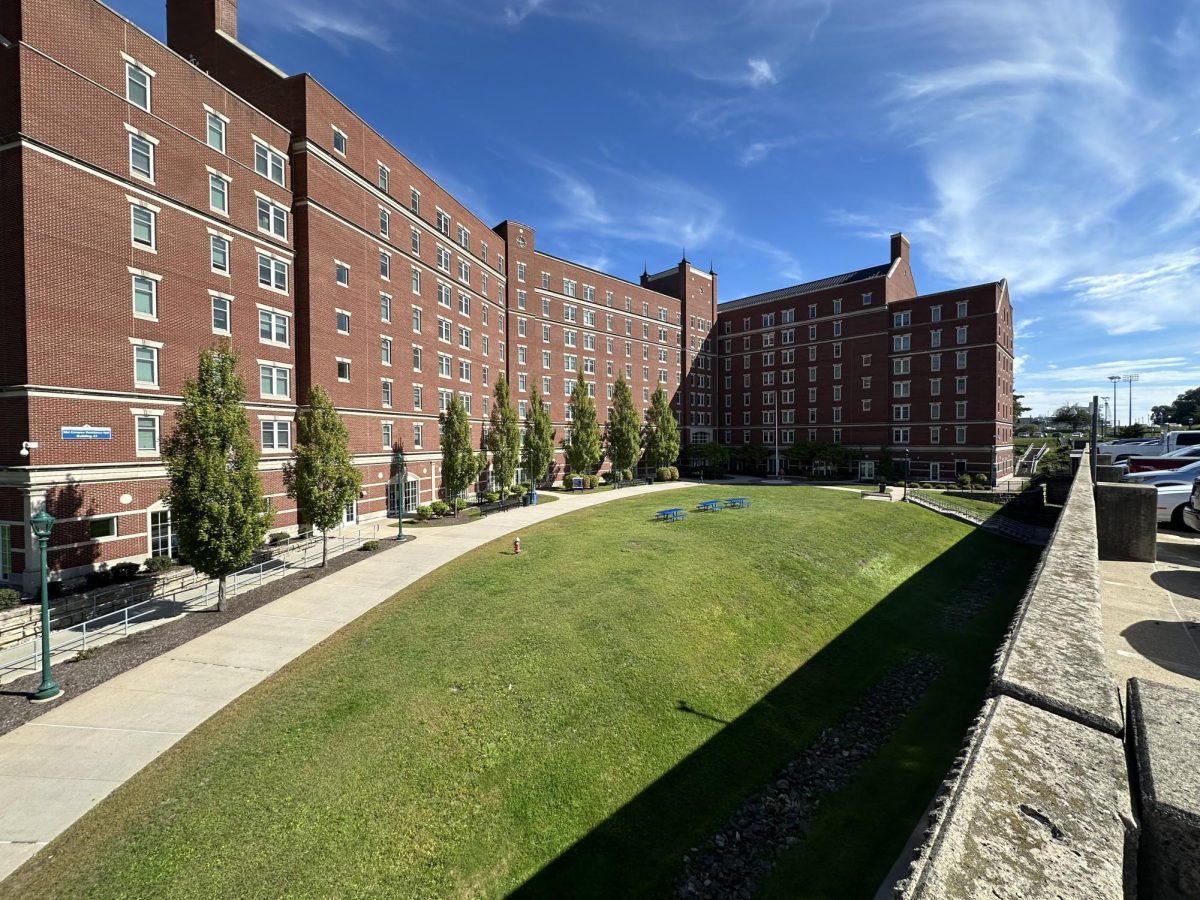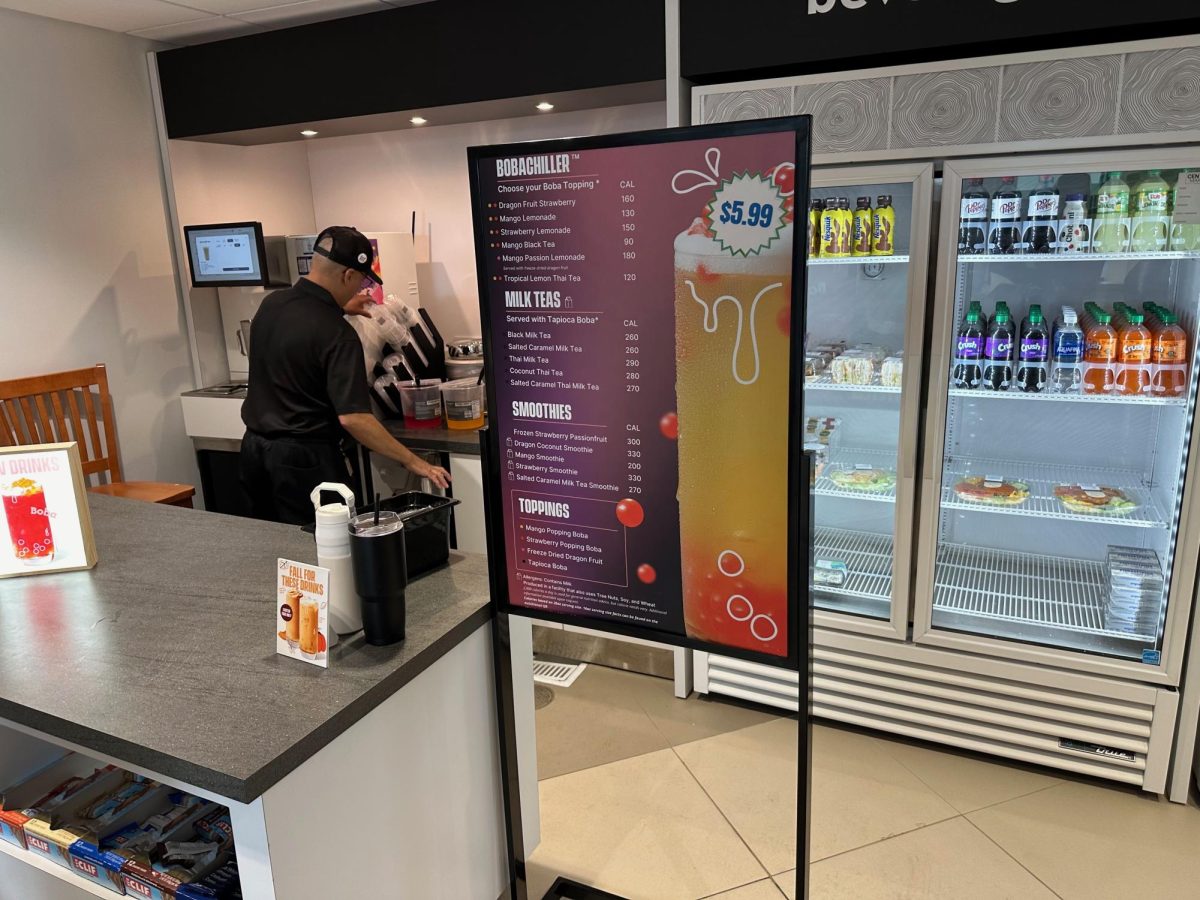By Jonathan Stankiewicz
Student participation has always been an issue on campus, but with recent talks of adding student voting members to the faculty senate on campus, one has to wonder ‘why the push?’ when student seats on committees on campus aren’t even filled.
There are 14 faculty committees on campus that have student seats. Those committees range from the library committee to the curriculum committee, as does their importance. As of this week, nine of the 14 committees have students on them and of the nine, eight are to capacity for the number of seats allotted. Some committees have the SGA elect students to the seats while others don’t.
The diversity committee on campus has no limit on student members, after 30 days of being on the roster a student would get voting privileges.
Some of those seats are SGA students. SGA Vice President Liz Braun is on the Student Affairs Committee.
President Bergenn, with his recent unanimously passed resolution that there is a lack of a student voice on campus, understands that filling those seats on committees throughout campus has always been a problem.
“The fact that we have more than half of the available seats full is, in recent history, unprecedented,” said Bergenn. He said that SGA and CCSU has been quite successful filling the seats this semester, but added that there hasn’t been much to compare it to from the past. Bergenn said that he has had faculty members come up to him recently and tell him that this is the first time that they have seen students in certain committees.
Faculty Senate Secretary Burlin Barr said that student involvement should really focus in the committees. “The real thinking on different issues goes on in the committees, and their reports are then funneled through the senate–which approve them or send them back for revision,” said Barr. He thinks that it is most important for students to be on those committees since they are “entitled to and already have access to.”
“By the time issues come before the senate, the work and thinking that goes into them has almost always been completed,” said Barr. “Students should add their voice before that point, and the committee system allows for that.”
An example of that would have been at the Nov. 14th Faculty Senate meeting where Bergenn asked for student consultation on the Academic Standards motion on grade appeal changes.
“[The] motion would really have been a moot point if the two student positions on the Academic Standards committee had been filled,” said Barr. He knows that students can gain a lot of skills that they can use in the real world. “Students have access to decision-making through the committees, and they generally do not exercise their voices there,” said Barr.
“If there were a pattern of disregard for issues important to students; if there was tangible malfeasance and unfairness that the faculty decision-making bodies were directing toward the students, then the SGA proposal would be far more grounded,” Barr said. He defended his point by adding that the Academic Standards Committee had students’ best interests in mind from the changes they had made.
SGA Senator Ryan Baldassario feels that there is a dedicated core of students at CCSU that would participate but they may not know how or where to go. Baldassario knows that it may not be the case that students are currently reading SGA’s minutes and following the senate committees. If students didn’t get into SGA being on a faculty committee may be a way for them to get involved, said Baldassario.
Senator Christopher Marcelli, when Bergenn sent out what committees had student seats still available, said that half of the faculty committees meet on the same day as the SGA senate meeting. “It’s no one’s fault,” said Marcelli, who added that that fact even makes it hard for SGA senators to get to certain faculty committee meetings.
“If we can’t do it, someone else should,” said Baldassario on students sitting on faculty committees. He would have no problem with any student filling up those seats because it’s all about the students.
This year, more than others, Bergenn has been pushing harder for students to get involved. With the SGA newsletter, which he sends to every CCSU student, Bergenn tells students which faculty committees have seats available to students if they are interested in getting involved.
“I’ve only gotten two, maybe three responses from that,” said Bergenn. Not the showing that Bergenn is looking for with an undergraduate student body of just over 10,000 students. He has thought about sending it from his personal email, but Bergenn is worried that student see the email as spam and immediately delete it. He doesn’t want to spam them, he wants to inform them.
“There’s a laundry list of reasons why people may not be doing it,” said Bergenn on the lack of student involvement. That list includes students having jobs, scheduling conflicts, among other things, Bergenn said.
Senator Shelby Dattilo doesn’t necessarily agree with Bergenn. “Their main focus is and should be their classes, work, and relationships,” Dattilo said. “If they want to make a change they will join these committees. The truth is most people don’t want to make changes, they just want to complain about how nobody else is.”
With a goal of filling every seat, Bergenn is already mostly halfway there. He has asked his senators to ask around and try to help find people who would be interested in sitting on those committees.
“It’s everyone’s responsibility to get involved,” Bergenn said. That is why he has gone to so many Faculty Senate meetings, to work together to get the seats filled.
“Obviously, there’s a lot of people that could be doing more,” said Bergenn on getting the seats filled.


